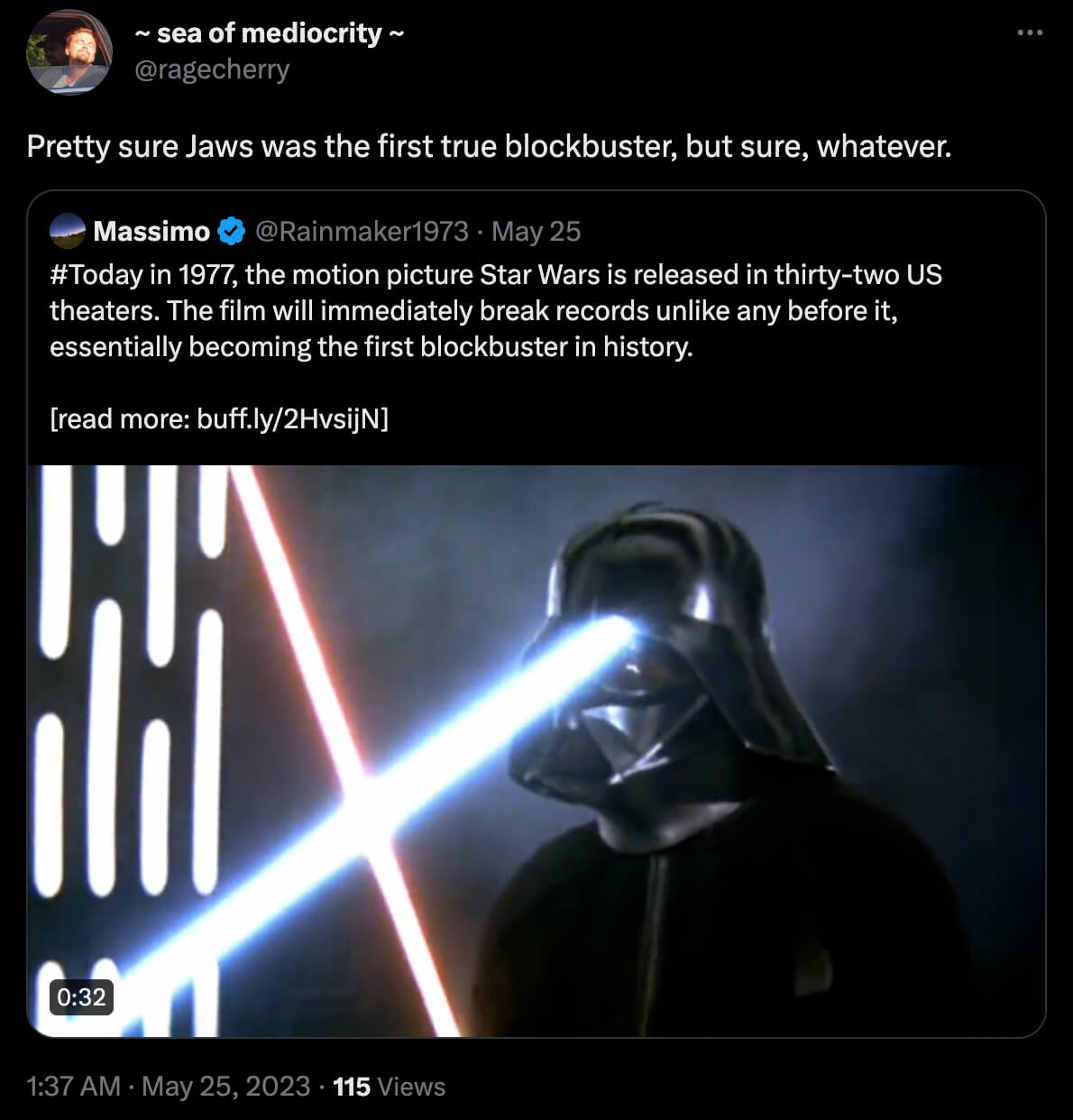Why Are Successful Movies Called Blockbusters?

Anyone who has watched a movie in the 21st century has likely heard of the term "blockbuster." While millennials and older may think of the now-defunct movie and video game rental store, we typically think of the movies that explode (Michael Bay approves) in popularity and make hundreds of millions, if not billions, of dollars. Avatar, Titanic, Star Wars, Jurassic World, Fast & Furious, and almost every MCU movie come to mind.
While blockbuster has become a well-known term in the public lexicon, do we ever stop and think, "Why?" Looking at the word, it appears to have no relation to movies at all. So, where does blockbuster come from, and how did it become the term we use today? Those are questions we love answering here at Slang.net. So sit back, grab some popcorn, and enjoy as we provide the exposition narration.
Origin story
Like all superhero backstories, blockbuster is birthed from tumultuous origins. During World War II, military personnel referred to powerful bombs that could destroy whole city blocks as "block-busters." At this time, you did not want a blockbuster anywhere near your theater.
However, in the mid-1940s, advertisers using provocative language began marketing movies as "block-busters" because of the audience's familiarity with the wartime artillery. One of the earliest examples came in May 1943 in an advertisement for Bombardier (billed as "The block-buster of all action-thrill-service shows!"). This trend continued into the 1950s and 60s as the film industry adopted the term to describe movies with explosive content and potential for busting up the box office's receipts.
Rising action
However, it wasn't until the mid-1970s that the blockbuster we know and love now was born. Steven Spielberg's Jaws (1975) and George Lucas' Star Wars (1977) are widely credited with cementing the true blockbuster, delivering captivating entertainment revolving around exciting action and impressive special effects (for their time, at least). Because of their popularity, long lines of eager moviegoers would form out the theaters' doors, wrapping around city blocks and essentially "busting" them up (and giving new meaning to "blockbuster").

Jaws and Star Wars are also responsible for summer's designation as prime blockbuster season (often beginning in May and ending in August). Hollywood had previously relegated these months to low-quality films. But these films (and others) showed major film studios the financial potential of commercializing summer hit movies (repeated viewings from kids out of school and vacationing families, marketing-branded toys and clothing, etc.), forever changing the landscape of Hollywood.
Climax
Through the 1980s, 1990s, and 2000s, blockbusters (including the now-defunct rental stores) continued to grow, along with their budgets, spawning lucrative franchises that still endure today. Examples include the aforementioned Star Wars, Indiana Jones, Top Gun, Die Hard, Jurassic Park, and Transformers. Also, comic-based movies during these years, like Batman, X-Men, and Spider-Man, set the stage for the MCU's and DCU's blockbuster dominance in the 2010s.
After covid, many theaters were reeling from low attendance, but blockbusters have come to the rescue like many of the heroes they portray, creating a reason for moviegoers to watch their spectacles on the big screen again. While blockbusters are often part of a franchise or derived from an established intellectual property nowadays, new and unique blockbusters continue to emerge, even outside the summer window and with lower budgets.
Conclusion
To some critics' dismay, the blockbuster has proven a mainstay in the cinematic experience and moviegoers' vocabulary. While initially intended to describe a device meant for massive destruction, the term now represents films that generate massive revenue, imagination, and fandoms.
The End
(Until we make a sequel ... or inevitably reboot it with a requel)